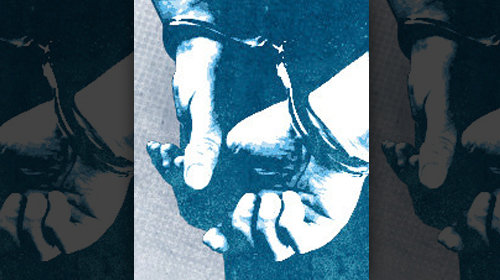
Today, the U.S. has the highest incarceration rate of any country in the world. With over 2.3 million men and women living behind bars, our imprisonment rate is the highest it’s ever been in U.S. history. And yet, our criminal justice system has failed on every count: public safety, fairness and cost-effectiveness. Across the country, the criminal justice reform conversation is heating up. Each week, we feature our some of the most exciting and relevant news in overincarceration discourse that we’ve spotted from the previous week. Check back weekly for our top picks.
Now hiring: Ex-cons need apply
A new San Francisco law would prevent employers from considering the criminal records of applicants until after they had determined whether or not they are fit for the job. As the author of this editorial says, “If we create obstacles rather than opening the door to a life that's worth living, then, as a society, we fail. Beyond compassion, we need to give people a way out of the life that got them in trouble in the first place.”
Prison issue: Lack of care for people with mental illness
This editorial highlights a disturbing trend in our country’s criminal justice system: the criminalization of the mentally ill. The author proposes court-ordered outpatient treatment as a safe and effective alternative.
New Jersey: Marijuana for Patients May Proceed, Christie Says
Gov. Chris Christie finally implemented a program to provide medical marijuana for those suffering in pain from a short list of chronic illnesses, almost two years after former Gov. Jon Corzine signed the bill into law.
Oklahoma: Lack of cool air leaves inmates miserable
Can’t stand the heat? Before you whine in full force, consider those in Oklahoma prisons, most of whom do not have air conditioning and occupy cells with temperatures as high as 96 degrees.
Philadelphia’s Less Crowded, Less Costly Jails
The inmate population in Philadelphia’s jails has decreased substantially in recent years, saving the state millions of dollars. The decline in 2010 can largely be attributed to a reduction in the pretrial detainee population, in addition to people locked up for violations of probation or parole.
Learn more about overincarceration: Sign up for breaking news alerts, follow us on Twitter, and like us on Facebook.
Stay informed
Sign up to be the first to hear about how to take action.
By completing this form, I agree to receive occasional emails per the terms of the ACLU's privacy statement.
By completing this form, I agree to receive occasional emails per the terms of the ACLU's privacy statement.

